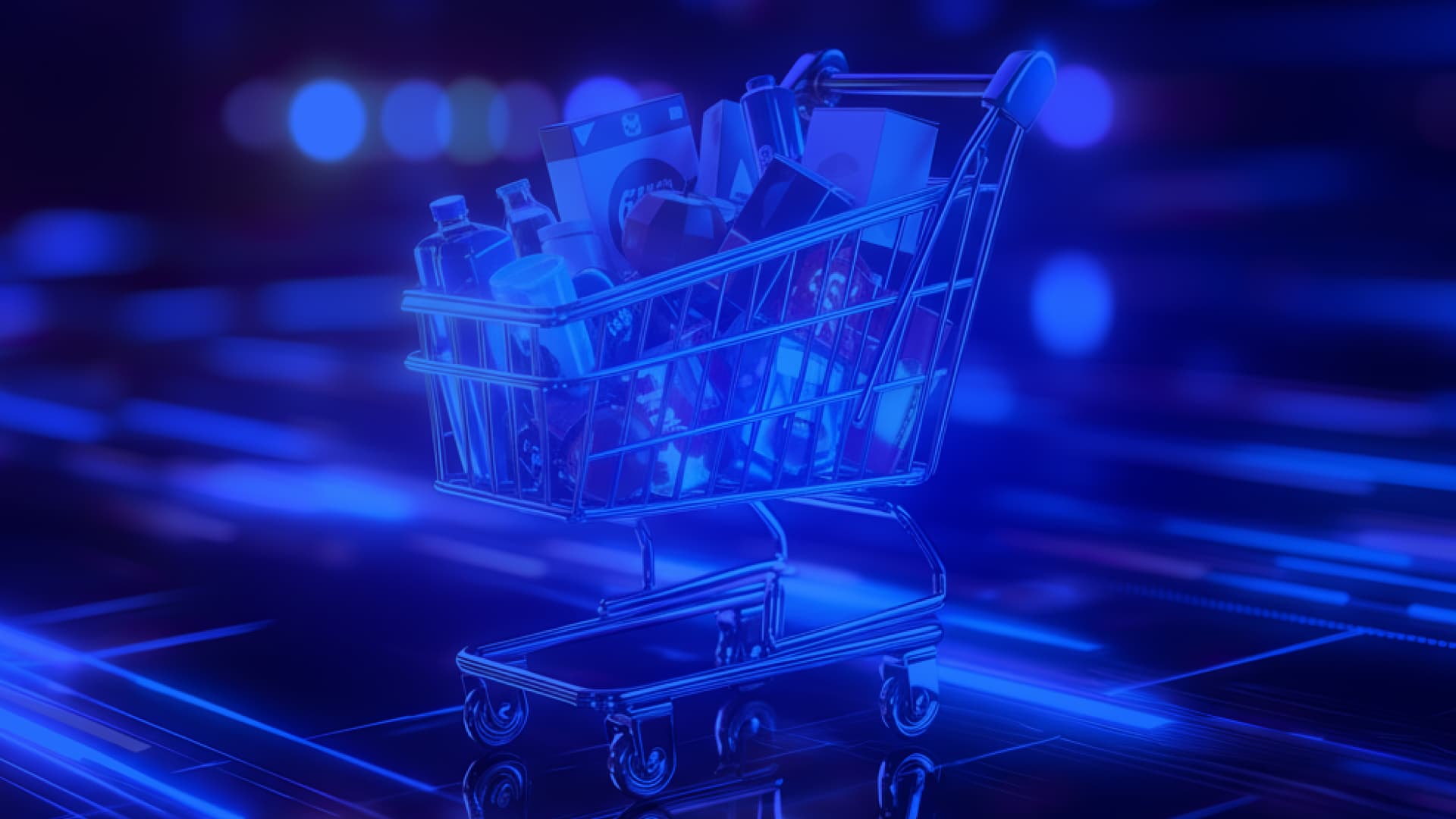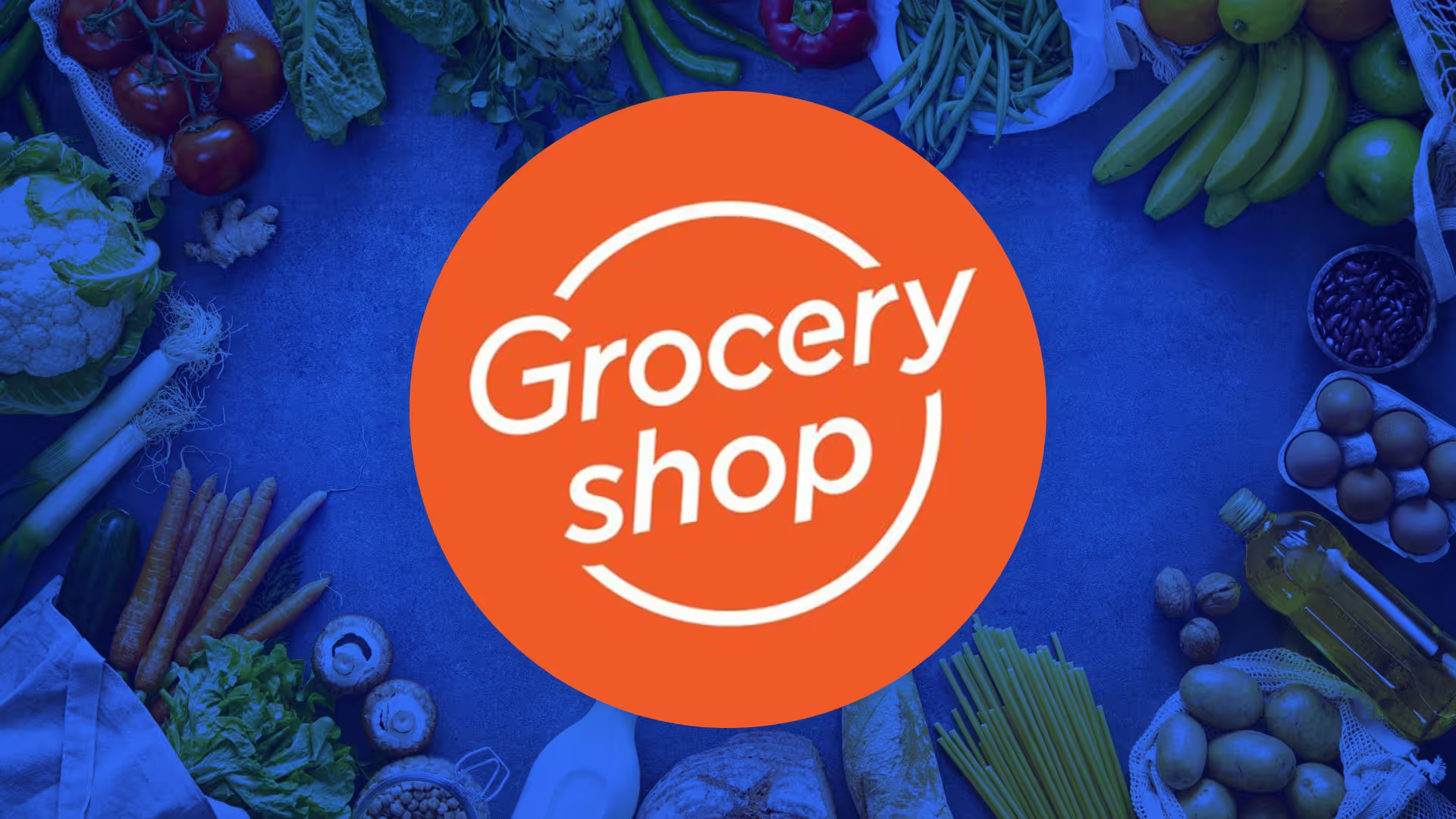In 2000, I got my first apartment and officially became a grocery shopper. Twenty five years later (yikes!), the grocery experience looks entirely different, demanding the question of what today’s new grocery shoppers can expect?
According to a recent Dynata survey conducted by Algolia, as grocery prices climb, consumers are underwater and it’s reshaping how they shop. They’re embracing a wide array of tactics to stretch their budgets, from joining retailer rewards programs to opting for private-label products. In parallel, interest in AI in grocery is exploding, particularly among Millennials and Gen Zers, challenging grocers to provide value and tap into AI to provide more tailored, engaging and convenient experiences.
To better understand consumer expectations for AI in grocery, we surveyed 1,000 U.S adults. Keep reading for the top takeaways.
Tight budgets are reshaping grocery behavior
Roughly one-third (30%) of consumers say grocery bills are stressing them out this year, and it’s changing what they buy. Many are not only looking for promotions on their favorite products, but also switching to private-label brands to save money, with 40% trying store brands for the first time.
Loyalty programs remain a lifeline: 60% of consumers report participating in these programs and are satisfied with the benefits. Yet, consumers expect more than deals; they want engaging and fulfilling shopping experiences. For example, 70% of consumers are drawn to grocery app games or “adventures” that provide discounts or brand-new items, demonstrating a need for interaction beyond conventional sales.
AI as grocery shopping companions
Nearly half of consumers (46%) want grocery retailers to offer deal recommendations tailored to their current cart or past purchases. This number rises to 51% for Millennials and 52% for Gen X. The takeaway? Personalization is a must in grocery, and Algolia’s data shows that agentic AI is too.
Grocers can introduce new experiences to shoppers that were impossible before either in person or online. For example, many shoppers jot a shopping list down quickly. Now it is possible to simply take a picture of that list, have a cart filled with products you prefer, and have it delivered. Another super (market) power is to have a recipe recommended based on dietary needs, and fill an order based on how many people you are serving. We can also look for advice more than a specific item on our list. A ‘post workout snack’ instantly transforms all the products into a proposed snack. It was impossible to see all of these types of drinks, bars, and shakes on one shelf or one page in the online shop. This simply was not possible before the introduction of generative and agentic AI. These capabilities are as exciting and productive to the grocer as they are to the shopper.
Shoppers view AI as a means to assist them in their grocery hauls and inspire them to create healthy meals. Specifically, consumers are eager to leverage AI agents for the following use cases:
-
Real-time alerts about restocked items (58%)
-
Suggest foods/meals based on dietary needs (56%)
-
Organizing meal prep (51%)
It’s clear that AI is quickly making online grocery shopping and meal planning easier. However, in-store grocery shopping won’t go away anytime soon. 38% of consumers say they enjoy in-person grocery shopping as an activity to simply get out of the house. The next wave of innovation in grocery? It may very well be AI in stores, such as an AI-driven aisle navigator.
AI is welcomed, but trust must be earned
There are ample opportunities for AI-driven grocery strategies. But also hurdles. One of the biggest hurdles? Earning consumers’ trust.
When examining how consumers feel about AI-driven grocery experiences, Algolia finds:
-
59% believe AI will make grocery shopping more convenient.
-
Yet, 50% don’t trust AI agents to manage grocery shopping because they worry the agents will hallucinate and purchase the wrong items.
-
Similarly, 63% don’t want social media tied to their grocery carts (e.g., a customer finds a recipe on TikTok and the ingredients are then added to their online shopping cart).
-
Only 44% of Millennials and 55% of Gen Z are confident in using an AI agent to reorder household staples, though younger demographics are usually the most pro-AI.
Consumers want to tap into AI as a convenient hack for grocery shopping, but skepticism remains. To increase AI adoption and solidify consumer trust, retailers must be transparent with consumers on how AI is used, built, and how AI outcomes are validated. The easiest way to do this is to leverage an AI partner that you, as a grocer, can trust. One that rigorously validates and orchestrates data, ensures zero hallucinations, and provides real-time, accurate information, so both you and your customers can rely on every AI-driven recommendation and outcome.
Searching for a solution?
Grocery shopping doesn’t have to be a chore. With the right mix of AI and personalization, it can be faster, more relevant, and even a little fun. And in a market where shoppers are cutting back, online grocers can’t afford to lose the search traffic they still have. Today’s shoppers want smart deals, real rewards, intuitive tech and experiences that feel tailored—not generic. If you’re interested in learning more about how AI can help with grocery shopping,









.avif)
